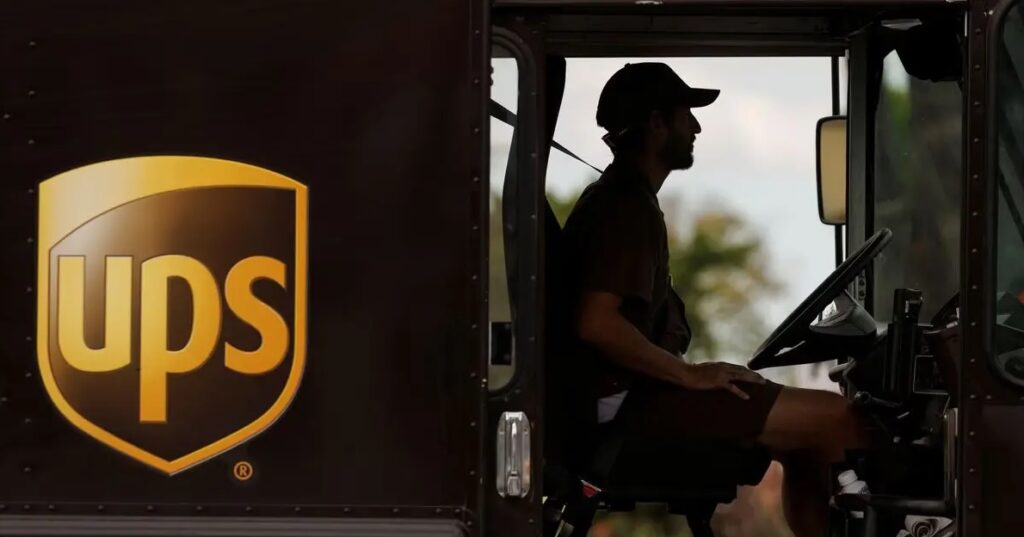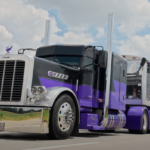The labor agreement between UPS Inc. and the International Brotherhood of Teamsters, representing 340,000 employees, has been successfully ratified. This significant development follows a series of negotiations spanning several months, occasionally marked by disagreements, and ushers in a fresh five-year deal that introduces additional advantages for ordinary union members.
Having been meticulously worked out earlier in the summer and gaining the nod from union leaders in July, the new arrangement will bring salary hikes for individuals engaged in driving and loading UPS’s iconic brown delivery trucks.
In a statement on August 22, the IBT disclosed that 86.3% of participating members gave their endorsement to the new contract through the voting process.
Confirming the outcome, UPS, headquartered in Atlanta, expressed its contentment with the contract’s endorsement and acknowledged the level of backing it received.
“Our Teamsters-represented employees have voted to overwhelmingly ratify a new five-year National Master Agreement that covers more than 300,000 full- and part-time UPS employees in the U.S. All local supplemental agreements also have been ratified except one, which will be finalized shortly. Voting results for agreements covering UPS employees under locals 705 and 710 are expected soon,” UPS said in a statement.
Our Teamsters-represented employees have voted to overwhelmingly ratify a new five-year National Master Agreement that covers more than 300,000 full- and part-time UPS employees in the U.S.
Read more below 👇
— UPS News (@UPS_News) August 22, 2023
Out of the 44 negotiated supplemental agreements, only one is yet to be finalized. This particular agreement pertains to 174 members located in Florida. The union has specified that the implementation of the National Master Agreement will commence once the renegotiation and approval of this remaining supplement are completed.
“Our members just ratified the most lucrative agreement the Teamsters have ever negotiated at UPS. This contract will improve the lives of hundreds of thousands of workers,” Teamsters General President Sean O’Brien said.
“Together we reached a win-win-win agreement on the issues that are important to Teamsters leadership, our employees and to UPS and our customers,” Carol Tomé, UPS CEO, had said when the tentative deal was announced.
According to the Teamsters, the newly established five-year agreement is estimated to bring a total of $30 billion in increased wages and benefits for the workers encompassed by the contract, including delivery drivers, package handlers, and other relevant personnel.
💥TEAMSTERS RATIFY HISTORIC UPS CONTRACT
Today, #Teamsters voted by an overwhelming 86.3 percent to ratify the most historic collective bargaining agreement in the history of @UPS: https://t.co/er6xXgCnfx #HotLaborSummer #1u ✊✊✊ pic.twitter.com/nVCCRuaCXD
— Teamsters (@Teamsters) August 22, 2023
The agreement encompasses a series of noteworthy provisions. Among these, existing full- and part-time employees will experience a pay elevation of $2.75 per hour in 2023, followed by a gradual increase of $7.50 per hour over the contract’s duration.
Present part-time workers will see their pay elevated to a minimum of $21 per hour right away. Ongoing part-time staff will receive added earnings of up to $1.50 per hour in conjunction with the new hourly rates, whereas new part-time recruits will start at $21 per hour and progress to $23 per hour eventually. Senior part-timers with higher rates due to market adjustments will also receive general wage increments.
Part-time employees’ wage hikes are set to be twice the size of those outlined in the previous UPS/Teamsters contract. The union indicated that the existing part-time workforce will enjoy an average overall wage increase of 48% throughout the subsequent five years.
Moreover, part-time workers will be given preference for all seasonal support tasks performed using their personal vehicles, complete with an assured eight-hour duration of work. Notably, the duration of seasonal work will be limited to five weeks exclusively during November and December.
When it comes to full-time staff, the augmented pay rates will position union-affiliated UPS drivers as the highest-paid delivery drivers in the nation. The Teamsters asserted that these drivers will experience an average top hourly rate of $49, equivalent to an annual income of $101,920 for a standard 40-hour work week without overtime.
The company projected that, by the agreement’s conclusion, full-time drivers would accumulate approximately $170,000 annually, considering both compensation and benefits.
Additionally, the accord eliminates a two-tier wage system that had been in place for weekend delivery drivers since the company introduced weekend and seven-day-a-week services on January 1, 2020. The agreement also designates Martin Luther King Jr. Day as a paid holiday.
Furthermore, the deal involves the establishment of 7,500 fresh full-time union positions and the fulfillment of 22,500 vacant positions. This establishes opportunities for part-time workers to transition into full-time roles over the contract’s term.
Both the company and the union have concurred on substantial enhancements to health and safety measures for drivers. These include the installation of air conditioning units in all newly procured delivery vehicles, sprinter vans, and package cars from January 1, 2024 onwards. Older trucks still in operation will also be retrofitted with air conditioning, along with the addition of two fans, heat exhaust shields, and air induction vents in the cargo compartments of the vehicles.
The voting process marks the conclusion of an extensive and occasionally challenging contract negotiation phase. The possibility of a strike by UPS employees had caused concerns among logistics experts, particularly due to the potential repercussions on the nation’s economy and supply chain. This apprehension primarily revolved around the potential inability to manage the substantial cargo volume that the company handles on a daily basis. Given that UPS facilitates the movement of roughly 25 million packages daily, amounting to 6% of the nation’s gross domestic product, both businesses and individuals rely heavily on its services.
On August 8, the company recognized that the prolonged negotiation process and the subsequent agreement would have implications for its forthcoming financial performance. As a result, UPS adjusted its full-year profit projections, citing increased expenses following the agreement’s conclusion. In its earnings release, UPS attributed this guidance alteration to the “volume impact from labor negotiations and the costs associated with the tentative agreement.”
Notably, the UPS Teamsters National Master Agreement stands as the largest collective bargaining agreement within the private sector in North America.





